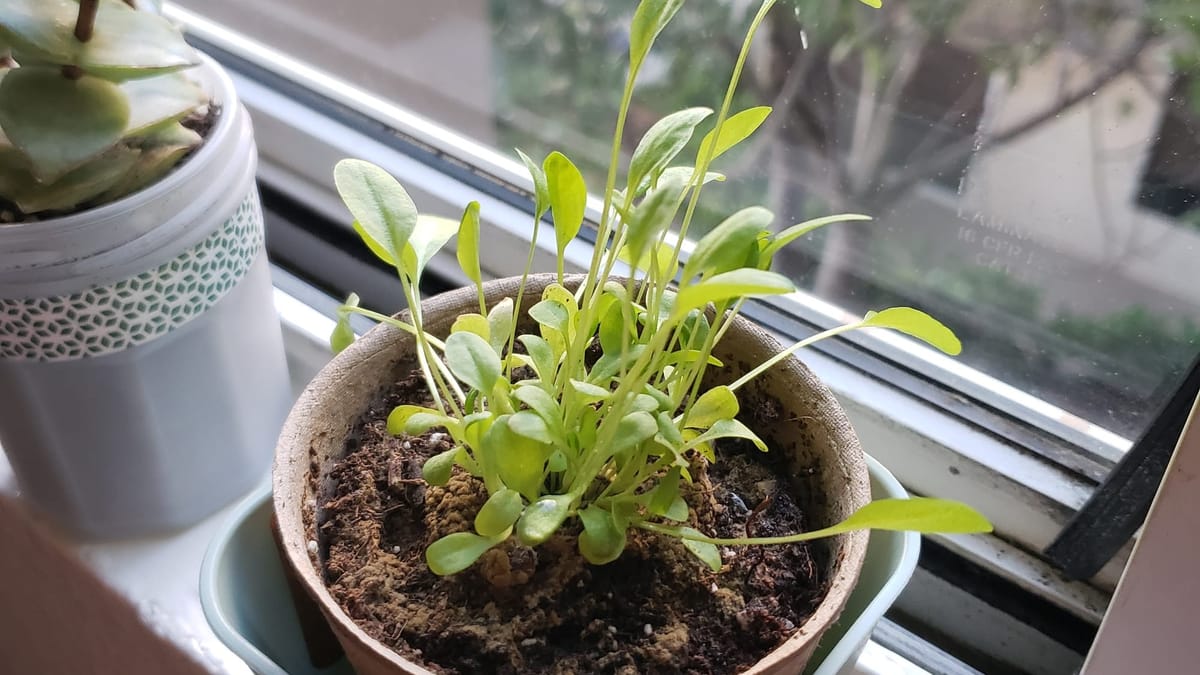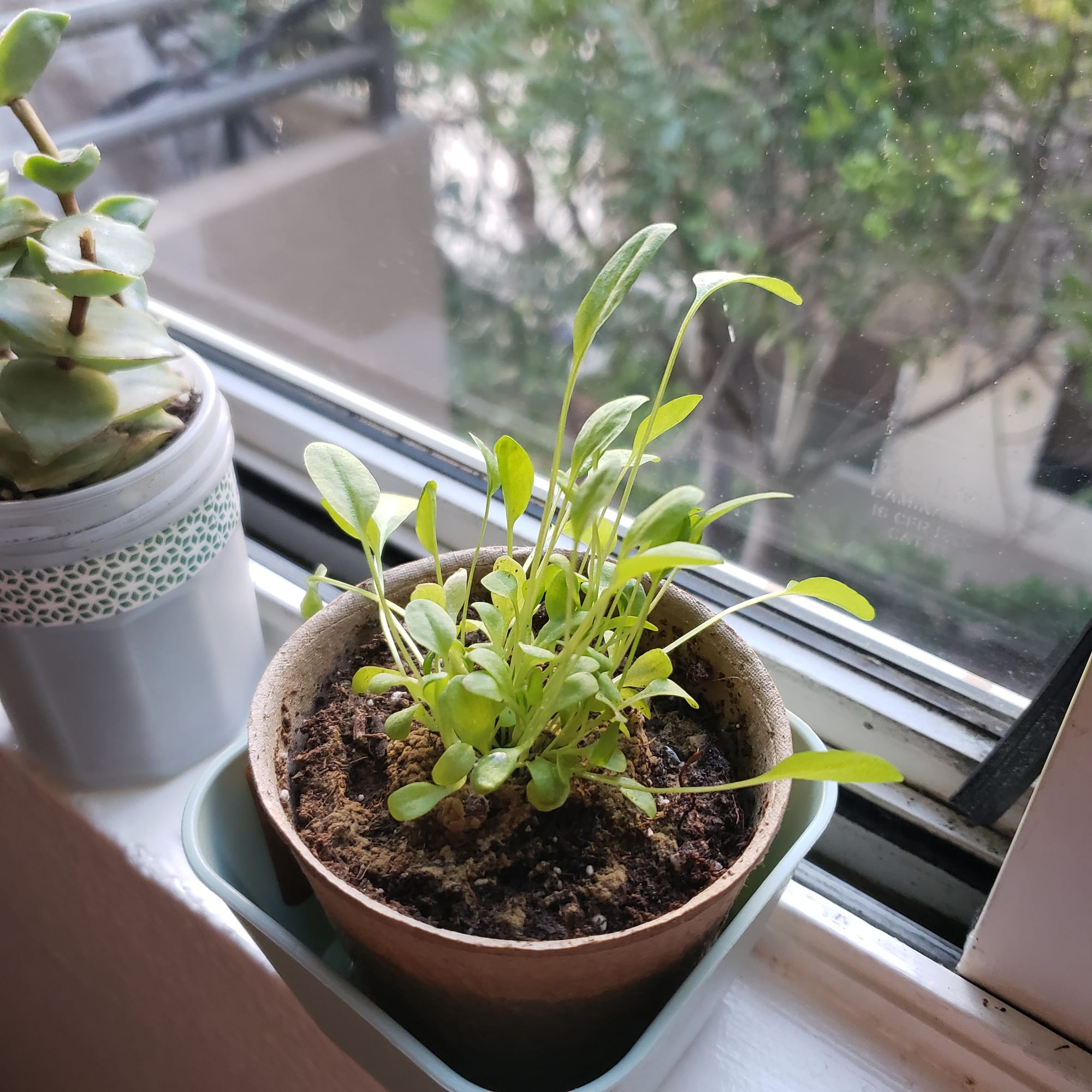Why did Dan’s plant die?
And more questions from the Night Water mailbag

We all have questions. Questions like “How to get My AI on Snapchat?” or “How do get rid of Snapchat AI?”
I can’t answer every question in the universe, but I can try, three questions at a time. Let’s open up the Night Water mailbag and see what’s vexing people.
Do you have a question that you think I’m somehow qualified to answer? Email it to me and I’ll get to it in the next Night Water mailbag.
- Dan
Thanks for writing in, Dan. I know the pain of following instructions only to fail miserably, with no understanding of where you went wrong. Unfortunately, I am not a plant expert, and, like you, was ignorant of sorrel until someone told me about it.
To understand more about sorrel, I turned to an AI chatbot. “Why did Dan’s sorrel plant die?” I asked. “All things die,” the AI chatbot said. “Dan should feel lucky that it wasn’t his turn. Soon it will be. Soon it will be.” My computer then started making funny noises and smoking a bit around the edges of the keyboard.
Feeling slightly unsatisfied with that answer, I set out to find a plant expert. I found one in Ramin Rahni, a biologist based in New York. Ramin warned me that his practical gardening knowledge might be limited since he mostly works with Arabidopsis plants, “the lab rat of the plant world” according to Ramin. But given that he has a Ph.D. in Biology and I have a BFA in Dramatic Writing, I didn’t feel like I was in a position to quibble over “practical” knowledge.
Dan, thanks for sending me additional information about your sorrel, the conditions it was growing in, and this pre-mortem snapshot:

Ramin and his coworkers analyzed the data and came up with the following possibilities:
- Dan, you over or underwatered it
- Dan, the sorrel plant was shocked to death by the location change
- Dan, the air was too cold or too dry
Apparently, much like with humans, it’s pretty hard to diagnose the exact cause of death for a plant without seeing the corpse. Even the hardiest plants can die in a myriad of ways.
While I might not have been able to find a conclusive answer for why your sorrel plant died, I do have some advice from Ramin and his labmates if you want to try again. First, just try growing some from seeds instead of an existing planting. It should sprout quickly and won’t be as easy to kill as a planting. Second, if you have access to outdoor space, try growing it outside instead of on your windowsill. One of Ramin’s coworkers grew some outside in an area with a lot of sun, a lot of heat, a lot of rain, and a lot of humidity, and it grew to be massive with very little care from her.
In addition to being a very helpful biologist, Ramin is one-half of the art-rock duo Tar Of. You can buy their latest album, Confidence Freaks Me Out, on Bandcamp, or send them a few fractions of a cent by streaming it on Spotify and Apple Music.
- Zia
Thanks for writing in, Zia. I’ve been living here in the UK now for over a month and I’ve only encountered brown sauce in the wild at one location: Greggs. While you may not be eating in the wrong places if you’ve never been to Greggs, you are certainly missing out on a crucial part of a healthy British diet.
I polled a British person or two and discovered that brown sauce is most commonly found in greasy spoons accompanying meat and potatoes. It’s perfect on a bacon sandwich, for example. Outside of Greggs, it feels unlikely that I’m going to run into a lot of brown sauce as a vegan diner, but I’ll keep an eye out and report back if a dollop of brown sauce changes my life.
- Grant
Good question, Grant. Substack—the platform that (currently) hosts this and many other fine newsletters—has been back in the news since The Atlantic published “Substack Has A Nazi Problem,” a report showing that Substack is not only hosting Nazi newsletters, it’s actively profiting from them. A lot of people—myself included— think that’s very bad. And yet, when asked if they would enforce their existing moderation policies and remove the newsletters, Substack refused.
This isn’t that dissimilar from past Substack controversies—right-wing extremists call the platform home, readers and writers protest, some leave, Substack moves on relatively unscathed. I think the big difference with this latest stir is that most people understand Nazis are bad and don’t want to be associated with them, even tangentially. The idea, too, that Substack is making money off Nazi communities (by taking a share of subscription income) strikes many as beyond the pale. It’s one thing to inadvertently host Nazi content, as a social network like Facebook might. It’s another thing to welcome and monetize it.
So this controversy hasn’t gone away as easily, and just this week, Substack announced (in a mealy-mouthed statement typical of the company) that they would remove some Nazi content that’s been reported to them. It’s not much of a victory— plenty of Nazi newsletters remain on the platform and Substack reiterated to The Verge that it wouldn’t be proactively removing any.
We’ll see if Substack makes any further capitulations, but I’m not particularly optimistic. In terms of Night Water, I’d already decided last April to make the leap to a different platform—hence my post “You need a Substack exit strategy”. I didn’t actually get around to it last year due to planning and executing an international move, but the wheels are now turning and I plan to have Night Water off of Substack and over on Ghost by mid-February.
For you, Grant, and the rest of Night Water’s loyal readers, the experience won’t change much. You’ll still get Night Water in your inbox—no need to re-subscribe— and you’ll still be able to read it all on the web.
Moving from Substack to Ghost is relatively easy—I can export the bare bones of my posts and all of my free and paid subscriber information—but it’s not necessarily straightforward. If you’re interested and want to follow along, I’ll be posting updates about the process over on Bluesky. (And if you need a Bluesky invite, let me know—I have a few extra.)




